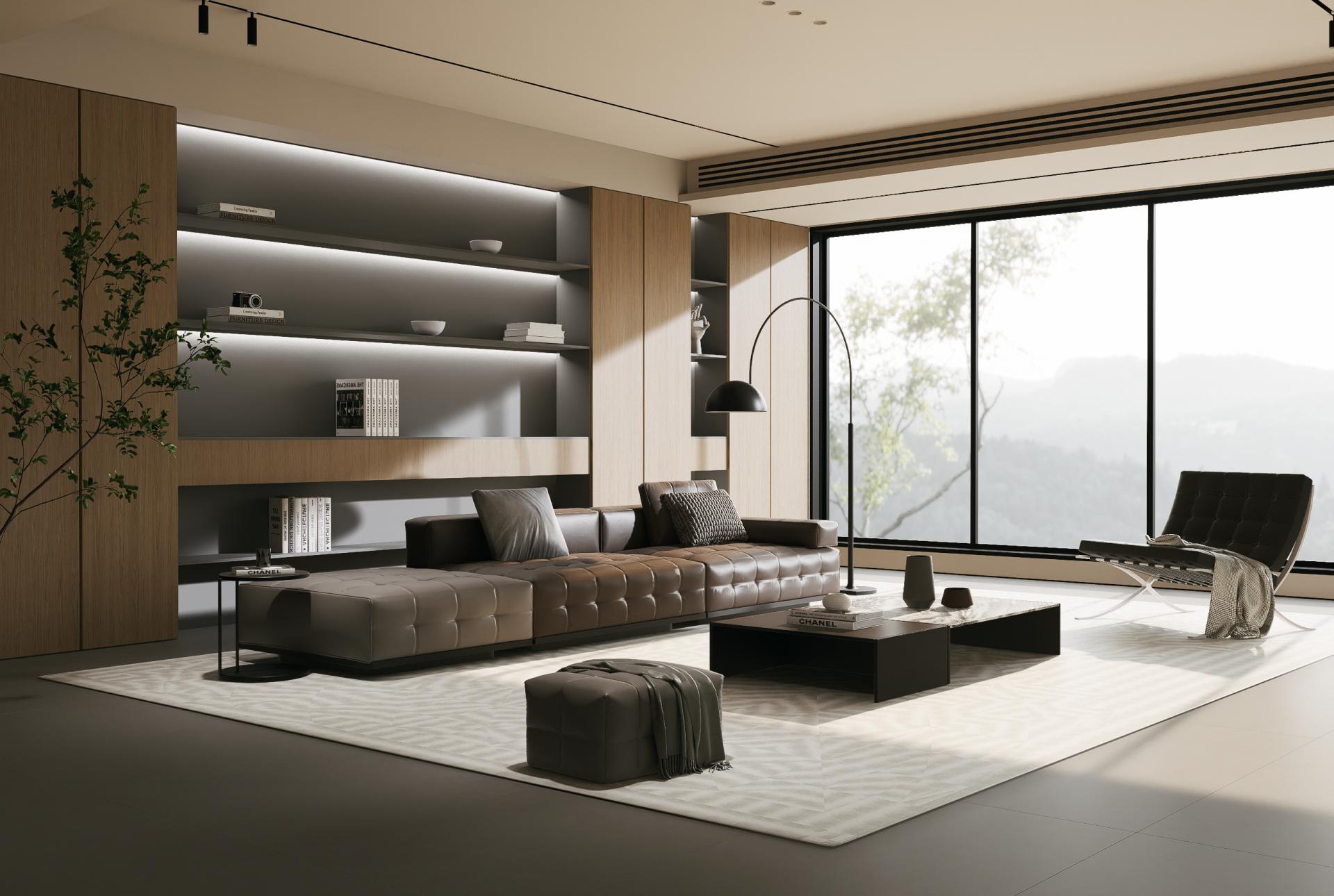In a world where interior design meets functionality, furniture made from HPL density board has become a game-changer. With its elegant look, durable construction, and reasonable price tag, this material is rapidly becoming a top choice among homeowners, designers, and furniture manufacturers alike. Whether you're furnishing a cozy apartment, a high-traffic office space, or a trendy café, HPL density board furniture offers a smart solution that combines aesthetic appeal with everyday practicality.
In this in-depth article, we’ll explore everything you need to know about HPL density board furniture—from its core characteristics to its key benefits, selection tips, and maintenance techniques. Get ready to discover why this furniture type is a smart investment in both style and sustainability.

1. What Is HPL Density Board Furniture?
HPL density board furniture is created by applying High-Pressure Laminate (HPL) to the surface of Medium Density Fiberboard (MDF) or high-density board. This combination brings together the strength and versatility of engineered wood with the high-performance surface of HPL. The result? Furniture that is durable, attractive, and highly resistant to daily wear and tear.
HPL is made by compressing layers of kraft paper soaked in resin under high pressure and temperature. The resulting sheet is then bonded onto density board, giving it enhanced performance capabilities like scratch resistance, moisture resistance, and more.
2. Key Characteristics of HPL Density Board Furniture
To appreciate why HPL furniture is so popular, let’s break down its defining features:
• Scratch and Wear Resistance
One of the most outstanding qualities of HPL surfaces is their high resistance to scratches and abrasions. Whether it's a dining table in a busy household or an office desk that sees daily use, the surface stays pristine longer than traditional wood.
• Water and Moisture Resistance
While MDF or density board offers decent water resistance on its own, the addition of an HPL layer significantly boosts this property. Spills wipe up effortlessly, and the material doesn’t swell or warp as easily as natural wood.
• Stain Resistance
HPL surfaces are non-porous, which means stains can’t seep in. This makes it an excellent choice for kitchen cabinetry, bathroom vanities, and children's furniture where messes are frequent.
• Diverse Design Options
From wood grain and marble effects to bold solid colors and metallic finishes, HPL comes in a wide variety of styles. It allows designers and homeowners to match any decor theme—from rustic to ultra-modern.
3. The Top Advantages of HPL Density Board Furniture
Let’s dive deeper into the core reasons people choose HPL furniture over traditional wood or laminate options.
• Durability That Lasts
Because of the layered construction and high-pressure treatment, HPL density board furniture is built to withstand the test of time. It resists common damage like dents, scratches, and cracks, especially in high-use areas.
• Eco-Friendly and Sustainable
HPL density board is often made using recycled wood fibers and paper, reducing the need for logging new trees. It also meets formaldehyde emission standards, making it a safe and sustainable choice for families and the environment.
• Aesthetic Flexibility
Whether you're going for a natural oak finish or an abstract modern pattern, HPL gives you complete freedom of style. It can mimic materials like wood, stone, concrete, or even textiles—without the cost or maintenance.
• Easy Maintenance
Cleaning is simple. Just use a damp cloth to wipe the surface clean. No need for waxes or polishes, and it doesn’t require special treatments. This makes it perfect for busy households and commercial settings.
• Budget-Friendly
Compared to solid wood or stone surfaces, HPL density board furniture offers a premium look at a fraction of the price. You get long-lasting quality without the hefty investment.
4. HPL vs. Traditional Wood Furniture: A Comparison
| Feature | HPL Density Board | Traditional Wood |
| Scratch Resistance | High | Medium |
| Water Resistance | High | Low (unless treated) |
| Design Options | Wide Variety | Limited |
| Maintenance | Easy | Moderate |
| Cost | Affordable | Expensive |
| Environmental Impact | Eco-Friendly | High (if not sustainably sourced) |
Clearly, HPL furniture outperforms traditional wood in many everyday applications.
5. Best Uses for HPL Density Board Furniture
Because of its practical and aesthetic benefits, HPL density board is ideal for:
In spaces that experience frequent use or exposure to moisture, HPL is a clear winner.
6. How to Choose Quality HPL Density Board Furniture
When buying HPL furniture, keep the following factors in mind:
• Thickness Matters
Look for thicker density boards (usually 18mm or more) for added stability and load-bearing capacity. Thinner boards may be cheaper but often sacrifice durability.
• Surface Finish
Examine the HPL veneer closely. It should be smooth, uniform, and well-bonded to the core board. Avoid pieces with visible bubbles or uneven textures.
• Brand and Certification
Choose reputable brands that offer certified eco-friendly materials. Look for furniture that complies with CARB Phase 2 or E1 standards for low formaldehyde emissions.
• Edge Banding
Well-sealed edges prevent moisture from seeping in. High-quality HPL furniture will have proper edge banding using PVC or ABS strips.
7. Maintenance Tips for HPL Furniture
To ensure your HPL furniture looks and performs its best for years to come, follow these simple tips:
• Regular Cleaning
Wipe surfaces with a soft, damp cloth. Avoid abrasive sponges that could scratch the surface.
• Avoid Harsh Chemicals
Never use acidic or alkaline cleaners. Mild soapy water or a gentle furniture cleaner works best.
• Prevent Heat Damage
Though HPL is heat resistant to a degree, it’s wise to use coasters, trivets, or heat pads to prevent long-term damage from hot pots or pans.
• Limit Sun Exposure
Prolonged UV exposure can cause fading. Place your furniture away from direct sunlight or use window films/blinds to filter light.
8. HPL in Commercial Furniture Applications
It’s not just homes that benefit from HPL density board furniture. Its durability and design flexibility make it a top choice in commercial settings, including:
Retail stores
Hotels and resorts
Healthcare facilities
Schools and universities
Restaurants and cafes
In such environments, furniture is subject to constant use and strict hygiene standards. HPL's easy maintenance and resilience give it a major advantage.
9. Is HPL Furniture Worth It? A Cost-Benefit Perspective
When considering value for money, HPL density board furniture scores high:
Initial Cost: Lower than hardwood or high-end metal furniture
Maintenance: Minimal, saving time and cleaning costs
Longevity: Can last 10+ years with proper care
Style: Trendy and customizable at low cost
Resale Value: Maintains appearance, making it easier to resell or reuse
For those balancing budget, aesthetics, and function, HPL furniture offers one of the best returns on investment.
10. Future Trends: Where HPL Furniture is Headed
As sustainability and smart design continue to lead market demand, expect innovations in:
Recycled and eco-friendly HPL materials
Integration with smart home tech
Modular and space-saving HPL furniture
Custom 3D-printed HPL veneers for unique textures
HPL furniture is no longer just a budget-friendly option—it's becoming a style statement and a symbol of modern living.
English
Русский
العربية
Français
Español
Português
Deutsch
italiano
日本語
한국어
Nederlands
Tiếng Việt
ไทย
Polski
Türkçe
አማርኛ
Bahasa Melayu
தமிழ்
Filipino
Bahasa Indonesia
magyar
Română
Монгол
қазақ
Српски
हिन्दी
فارسی
Kiswahili
Slovenčina
Slovenščina
Svenska
українська
Ελληνικά
Suomi
Հայերեն
עברית
اردو
Shqip
বাংলা
Hrvatski
Afrikaans
Māori
සිංහල
Oʻzbekcha
latviešu
Беларуская мова
Bosanski
Български
ქართული
Lietuvių
Malti
Runasimi



